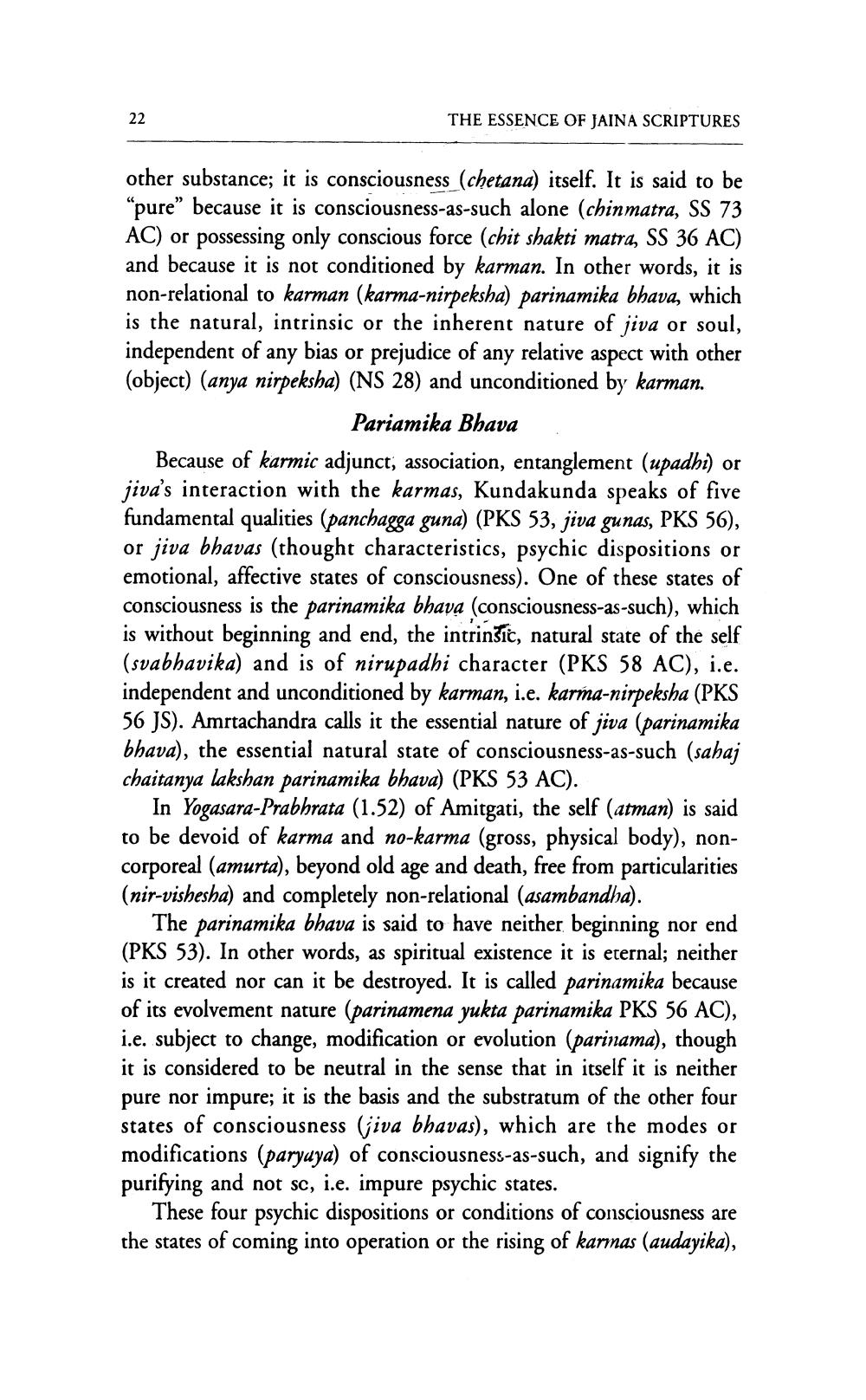________________
22
THE ESSENCE OF JAINA SCRIPTURES
other substance; it is consciousness (chetana) itself. It is said to be "pure" because it is consciousness-as-such alone (chinmatra, SS 73 AC) or possessing only conscious force (chit shakti matra, SS 36 AC) and because it is not conditioned by karman. In other words, it is non-relational to karman (karma-nirpeksha) parinamika bhava, which is the natural, intrinsic or the inherent nature of jiva or soul, independent of any bias or prejudice of any relative aspect with other (object) (anya nirpeksha) (NS 28) and unconditioned by karman. Pariamika Bhava
Because of karmic adjunct, association, entanglement (upadhi) or jiva's interaction with the karmas, Kundakunda speaks of five fundamental qualities (panchagga guna) (PKS 53, jiva gunas, PKS 56), or jiva bhavas (thought characteristics, psychic dispositions or emotional, affective states of consciousness). One of these states of consciousness is the parinamika bhava (consciousness-as-such), which is without beginning and end, the intrinsic, natural state of the self (svabhavika) and is of nirupadhi character (PKS 58 AC), i.e. independent and unconditioned by karman, i.e. karma-nirpeksha (PKS 56 JS). Amrtachandra calls it the essential nature of jiva (parinamika bhava), the essential natural state of consciousness-as-such (sahaj chaitanya lakshan parinamika bhava) (PKS 53 AC).
In Yogasara-Prabhrata (1.52) of Amitgati, the self (atman) is said to be devoid of karma and no-karma (gross, physical body), noncorporeal (amurta), beyond old age and death, free from particularities (nir-vishesha) and completely non-relational (asambandha).
The parinamika bhava is said to have neither beginning nor end (PKS 53). In other words, as spiritual existence it is eternal; neither is it created nor can it be destroyed. It is called parinamika because of its evolvement nature (parinamena yukta parinamika PKS 56 AC), i.e. subject to change, modification or evolution (parinama), though it is considered to be neutral in the sense that in itself it is neither pure nor impure; it is the basis and the substratum of the other four states of consciousness (jiva bhavas), which are the modes or modifications (paryaya) of consciousness-as-such, and signify the purifying and not sc, i.e. impure psychic states.
These four psychic dispositions or conditions of consciousness are the states of coming into operation or the rising of karmas (audayika),




